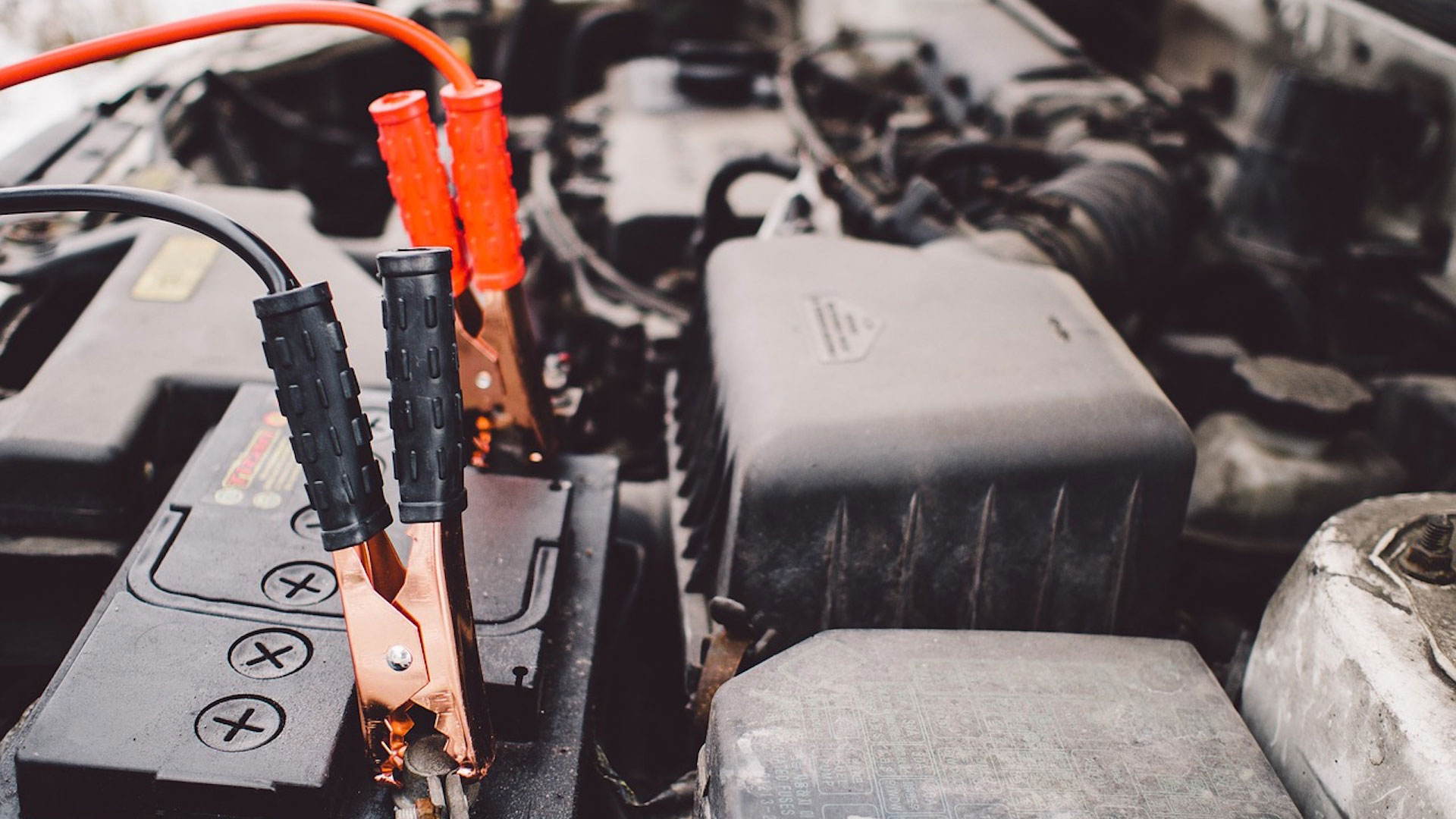Do you know, how long do car batteries last in Arizona. Don’t worry here I explain your answer in my article.Car batteries in Arizona typically last 2 to 3 years due to extreme heat. High temperatures significantly shorten battery life.
Arizona’s scorching climate is notoriously harsh on car batteries. The intense heat accelerates the evaporation of battery fluid, which leads to a decrease in battery efficiency and lifespan. Unlike cooler regions where car batteries can last up to five years, Arizona’s extreme temperatures cause batteries to wear out much quicker.
Proper maintenance, such as regular checks and ensuring the battery is clean, can help extend its life. Drivers in Arizona should be vigilant about battery health, especially during the summer months, to avoid unexpected breakdowns and ensure their vehicles remain reliable.

Credit: news.azpm.org
Car Battery Lifespan Factors
Car battery lifespan can vary greatly, especially in Arizona. Several factors impact how long a car battery lasts. Understanding these factors can help you maintain your battery better.
Climate Influence
The Arizona climate is very hot. High temperatures can shorten battery life. Heat causes the battery fluid to evaporate. This leads to internal damage and a shorter lifespan.
In Arizona, batteries often last only 2-3 years. This is much less than in cooler climates. It is important to check your battery regularly.
Driving Habits
Driving habits also affect battery life. Short trips do not allow the battery to fully charge. This can weaken the battery over time.
Longer trips help to keep the battery charged. Regularly driving for extended periods can extend battery life.
If you use many electronic accessories, the battery drains faster. Try to limit the use of these devices when the engine is off.
Battery Maintenance
Proper maintenance can extend your battery’s life. Regularly clean the battery terminals. Check the fluid levels and top up if necessary.
Ensure that the battery is securely mounted. Vibration can cause damage and reduce lifespan.
Summary Table:
| Factor | Effect on Battery |
|---|---|
| Climate | High heat reduces lifespan |
| Driving Habits | Short trips weaken battery |
| Maintenance | Proper care extends life |

Credit: www.bridwellautocenter.com
Arizona’s Unique Climate
Arizona’s climate is unique and can affect car battery life. The state experiences extreme temperatures, which can be tough on batteries. Understanding these conditions can help you maintain your car battery better.
Extreme Heat
Arizona is known for its scorching summers. Temperatures can soar above 100°F. This extreme heat can cause battery fluid to evaporate. Loss of fluid leads to internal damage and reduced battery life.
Heat also increases the rate of chemical reactions inside the battery. Faster reactions can lead to quicker degradation. It’s crucial to regularly check the battery’s fluid levels during summer. Parking in the shade can help extend battery life.
Winter Conditions
While Arizona is hot, winters can get cold, especially in northern areas. Cold weather can slow down the chemical reactions in the battery. This slowdown reduces the battery’s ability to hold a charge.
During winter, batteries need more power to start the engine. This increased demand can strain older batteries. Regularly inspecting your battery before winter starts can prevent unexpected failures.
| Season | Condition | Effect on Battery |
|---|---|---|
| Summer | Extreme Heat | Fluid evaporation, faster degradation |
| Winter | Cold Temperatures | Reduced charge holding, higher power demand |
- Regular checks are vital for battery health.
- Park in the shade during summer.
- Inspect your battery before winter.
Arizona’s climate requires special care for car batteries. Knowing the effects of extreme heat and cold can help you extend your battery’s life.
Impact Of Heat On Batteries
Car batteries in Arizona face unique challenges. The intense heat significantly impacts battery life. Understanding how heat affects batteries is crucial for Arizona drivers.
Chemical Reactions
Heat accelerates chemical reactions inside the battery. This can cause the battery fluid to evaporate. High temperatures also increase the rate of corrosion. Both factors reduce battery efficiency.
Battery fluid evaporation is common in Arizona. This leaves less fluid for the battery to operate. Corrosion affects the battery’s internal components. Corroded parts lead to poor electrical conductivity.
Battery Degradation
Heat speeds up battery degradation. The battery’s lifespan shortens due to thermal stress. This stress damages the battery’s internal structure.
Arizona’s heat can cut a battery’s life by half. A typical car battery lasts 3-5 years. In Arizona, it might only last 2-3 years. This faster degradation means more frequent replacements.
Drivers should regularly check their batteries. Look for signs of wear and tear. Routine maintenance can extend battery life.
Common Battery Issues
Car batteries in Arizona face unique challenges. The desert climate is harsh. Understanding common battery issues helps extend battery life. This section covers key problems like overheating and frequent replacements.
Overheating
Arizona’s high temperatures cause batteries to overheat. Overheating is a major problem. Batteries work best in moderate temperatures. Extreme heat speeds up chemical reactions inside the battery. This reduces battery life significantly.
Here are some signs of an overheating battery:
- Swollen battery case
- Leaking fluid
- Frequent need for recharging
To prevent overheating, park in the shade. Use a car cover. Regularly check the battery for signs of heat damage.
Frequent Replacements
Car batteries in Arizona often need frequent replacements. The intense heat shortens battery lifespan. On average, batteries last 2-3 years in hot climates.
Here are some tips to extend battery life:
- Keep the battery clean and free of corrosion
- Ensure the battery is securely mounted
- Check the electrolyte levels regularly
Follow these tips to avoid frequent replacements. Proper maintenance is key to longer battery life.
Signs Of A Failing Battery
Understanding the signs of a failing battery can save you from unexpected car troubles. Especially in Arizona, the heat can take a toll on your car battery. Knowing the early warning signs can help you take timely action.
Slow Engine Crank
One of the first signs of a failing battery is a slow engine crank. When you turn the key, the engine takes longer to start. This is because the battery lacks enough power to start the engine quickly.
If you notice the engine is slow to start, it’s time to check the battery. This issue can become worse in Arizona’s hot climate. Heat can speed up the chemical reactions inside the battery, leading to quicker wear and tear.
Dim Lights
Another clear sign is dim lights. If your car’s headlights or interior lights are dim, the battery might be failing. A healthy battery should power the lights brightly and steadily.
In Arizona, high temperatures can cause battery fluid to evaporate. This can weaken its ability to hold a charge. Regularly check your lights; if they dim, inspect the battery immediately.
Extending Battery Life
Extending the life of your car battery in Arizona is crucial. The hot climate can shorten a battery’s lifespan. Follow these tips to keep your battery healthy and strong.
Proper Maintenance
Proper maintenance is vital for a longer battery life.
- Clean the terminals: Dirt can cause battery drain.
- Check water levels: Ensure the battery cells are full.
- Secure the battery: Loose batteries can get damaged.
Regular Inspections
Regular inspections can prevent sudden battery failure.
- Inspect for corrosion: Corrosion can affect battery performance.
- Test battery voltage: Ensure it is within the normal range.
- Check for leaks: Leaks can lead to battery damage.
Following these tips can help extend your car battery’s life. Regular care and attention make a big difference in Arizona’s harsh climate.
Choosing The Right Battery
Arizona’s scorching heat can be tough on car batteries. Choosing the right battery is crucial. It ensures your vehicle runs smoothly. Consider several factors for the best performance. Heat resistance, brand reliability, and battery type are key. Let’s explore each aspect in detail.
Heat-resistant Models
Arizona’s hot climate demands heat-resistant batteries. Traditional batteries may fail quickly here. Look for batteries designed for high temperatures. These batteries have better heat tolerance. They last longer in extreme heat. AGM (Absorbent Glass Mat) batteries are excellent choices. They resist heat and vibrations well.
Brand Recommendations
Choosing a reliable brand is crucial. Not all brands perform well in Arizona’s heat. Here are some top recommendations:
- Optima Batteries: Known for durability and high performance.
- Interstate Batteries: Trusted for longevity and reliability.
- DieHard Batteries: Offers heat-resistant models with long lifespans.
These brands are tested for Arizona’s climate. They offer good warranties and support. Investing in a quality brand saves money and hassle.
| Brand | Heat Resistance | Warranty |
|---|---|---|
| Optima | High | 3 Years |
| Interstate | Medium | 2 Years |
| DieHard | High | 4 Years |
Choose the right battery for your car. Ensure it meets your needs and budget. A good battery keeps your car running smoothly in Arizona’s heat.
When To Replace Your Battery
Knowing when to replace your car battery in Arizona is crucial. Extreme heat can reduce battery life. Here’s a guide to help you understand the signs.
Average Lifespan
The average car battery lifespan in Arizona is shorter. Typically, a battery lasts around 2 to 3 years. Heat speeds up chemical reactions inside the battery. This leads to quicker wear and tear.
Professional Advice
Experts suggest checking your battery regularly. A professional can test your battery’s health. They use tools to measure its charge and performance.
Here are some signs you need a replacement:
- Slow engine crank
- Dim lights
- Check engine light on
- Swollen battery case
- Old age (over 3 years)
These signs indicate your battery might fail soon.
Consider having a professional inspect your battery annually. This ensures optimal performance and safety.

Credit: www.12news.com
Conclusion
Understanding how long do car batteries last in Arizona, I think you can now work yourself. Car batteries in Arizona typically last 3-5 years due to extreme heat. Regular maintenance extends their lifespan. Frequent inspections can prevent unexpected failures. Choose a high-quality battery to ensure reliability. Remember, Arizona’s climate impacts battery life significantly. Stay proactive to keep your car running smoothly.
